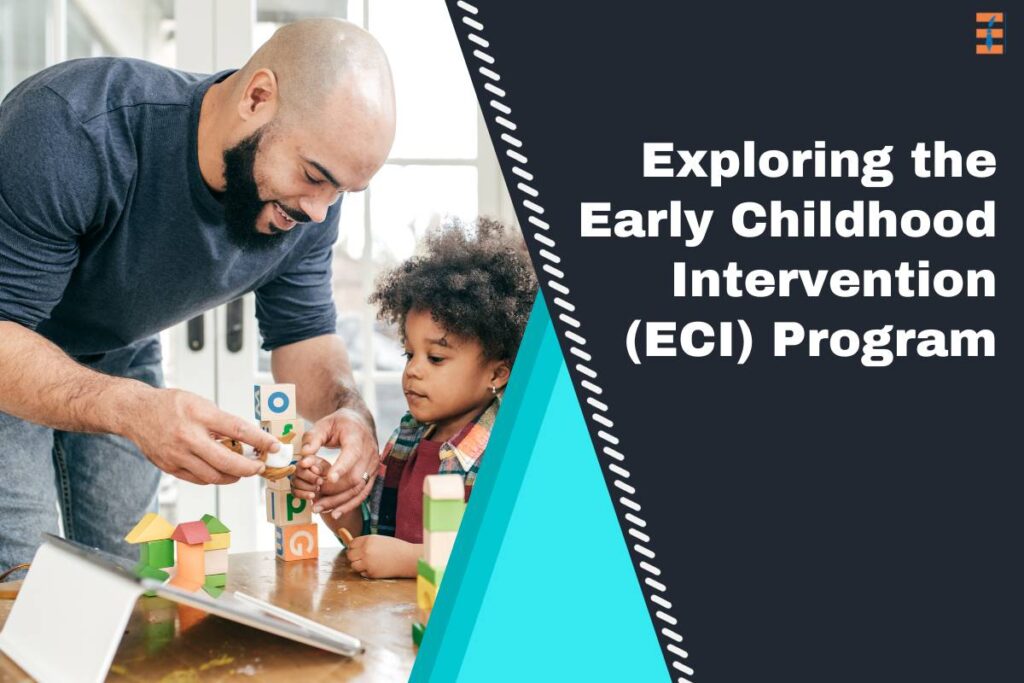The Early Childhood Intervention (ECI) program emerges as a beacon of hope and support for children facing developmental challenges. This comprehensive article delves into the essence of the Early Childhood Intervention program, its principles, methodologies, and the profound impact it has on the lives of young learners and their families. As we embark on this exploration, the nuanced layers of ECI unfold, revealing a mosaic of care, guidance, and empowerment for children during their formative years.
Understanding Early Childhood Intervention (ECI):
Early Childhood Intervention is a systematic and holistic approach aimed at identifying and addressing developmental delays or disabilities in young children. The program operates on the belief that timely and targeted intervention during the early years can significantly enhance a child’s developmental trajectory and improve their overall quality of life.
Key Components of Early Childhood Intervention:
1. Early Identification and Assessment

The cornerstone of ECI is the early identification of developmental delays or disabilities. This involves systematic screening and assessment processes to pinpoint areas where a child may require additional support.
2. Family-Centered Approach
ECI places families at the heart of the intervention process. Recognizing the crucial role of parents and caregivers, the program involves them as active partners in decision-making, goal-setting, and the overall intervention plan.
3. Multidisciplinary Collaboration
A hallmark of ECI is the collaboration between professionals from various disciplines, including developmental specialists, therapists, educators, and healthcare providers. This multidisciplinary approach ensures a comprehensive and well-rounded intervention plan.
4. Individualized Intervention Plans
Each child is unique, and ECI acknowledges this by designing individualized intervention plans tailored to meet the specific needs of the child. These plans encompass a range of services and therapies to address developmental challenges.
5. Early Intervention Services
ECI offers a spectrum of services, including speech and language therapy, occupational therapy, physical therapy, special education services, and behavioral interventions. These services aim to enhance the child’s cognitive, motor, communication, and social-emotional skills.
6. Inclusive Education Practices
ECI emphasizes the importance of inclusive education. Whenever possible, children with developmental challenges are integrated into mainstream educational settings, fostering socialization and reducing stigmas associated with disabilities.
7. Transition Planning

As children approach school age, ECI facilitates smooth transitions by working closely with school systems. This involves collaborative planning to ensure that the child continues to receive appropriate support in an educational setting.
Also Read: Inclusivity: Creating a Culturally Responsive Early Childhood Classroom
The Significance of Early Childhood Intervention:
1. Critical Developmental Period
The early years of childhood represent a critical period for brain development and learning. ECI capitalizes on this window of opportunity, aiming to address developmental challenges when the brain is most receptive to change.
2. Preventing Long-term Issues
Timely intervention in the early years can prevent or mitigate long-term developmental issues. By identifying and addressing challenges early, children are better equipped to overcome obstacles and reach their full potential.
3. Empowering Families
ECI recognizes the pivotal role of families in a child’s life. By involving parents and caregivers in the intervention process, the program empowers families to support their child’s development actively.
4. Enhancing Socialization Skills
Inclusive education practices within ECI promote socialization among children with and without developmental challenges. This early exposure to diverse social settings contributes to the overall well-being of the child.
5. Cost-Effective Approach
Investing in early intervention is a cost-effective strategy for society. Addressing developmental challenges early reduces the need for extensive special education services and support in the later years.
Challenges in Early Childhood Intervention:
1. Limited Awareness and Access
One of the primary challenges is the lack of awareness about the existence and benefits of ECI programs. Additionally, limited access to quality early intervention services poses a barrier for many families.
2. Stigma and Misconceptions
The stigma surrounding developmental challenges can lead to hesitancy in seeking help. Misconceptions about the effectiveness of early intervention may prevent some families from accessing these crucial services.
3. Resource Constraints
ECI programs often face resource constraints, including a shortage of trained professionals, funding issues, and inadequate infrastructure. These challenges can hinder the effective implementation of intervention plans.
4. Coordination and Communication

Collaboration between different service providers and professionals is essential in ECI. However, coordination and communication challenges among various stakeholders can impact the seamless delivery of services.
Future Directions and Innovations:
1. Technology Integration
The integration of technology, such as telehealth services and digital tools, can enhance the reach and accessibility of ECI programs, especially in remote or underserved areas.
2. Community Engagement
Increasing community engagement and awareness initiatives can help destigmatize developmental challenges, encouraging families to seek early intervention services without fear of judgment.
3. Professional Development
Investing in the professional development of individuals working in ECI is crucial. Ongoing training and support can enhance the skills of professionals, ensuring high-quality services for children and their families.
4. Research and Data-driven Approaches
Continued research on early childhood development and the effectiveness of intervention strategies is vital. Data-driven approaches can inform evidence-based practices and contribute to the refinement of ECI programs.
Conclusion
In conclusion, the Early Childhood Intervention program stands as a beacon of support, offering a lifeline to children facing developmental challenges and their families. Through its family-centered, multidisciplinary, and individualized approach, ECI encapsulates the spirit of early intervention, aiming to unlock the full potential of every child. While challenges persist, the ongoing commitment to innovation, awareness, and collaboration paves the way for a future where every child can thrive, irrespective of their developmental journey. As we navigate the intricate landscape of early childhood intervention, we uncover not only its current significance but also the boundless potential it holds for shaping the destinies of countless young lives.










